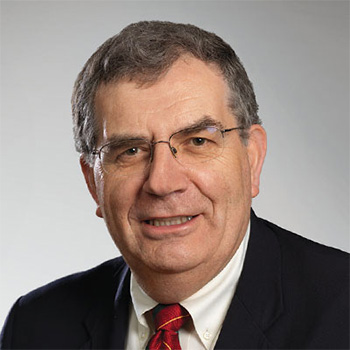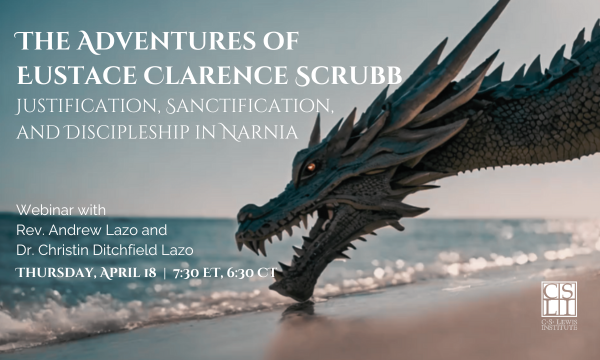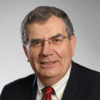Back to series



Profiles In Faith
John Owen (1616-1683)
Click here to open a Print - Friendly PDF
John Owen was born at Stadham, or Stadhampton, near Oxford, in the year 1616. The second son of Henry Owen, the local Puritan vicar, John had three brothers, William, Henry, and Philemon, and one sister, whose Christian name is unrecorded but whose married name was Singleton.
Almost nothing is known of the intimate details of the Owen household. In a rare comment on his upbringing, Owen later wrote that his father was “a Nonconformist all his days, and a painful labourer in the vineyard of the Lord.” When he was about ten, he went to a small grammar school in the parish of All Saints, Oxford, in preparation for his entrance to Queen’s College at the age of twelve. He matriculated in Oxford University on 4 November 1631, which required his subscribing to the Thirty-Nine Articles, and graduated B.A. on June 11, 1632...
While receiving his grounding in grammar, rhetoric, and philosophy, and taking part in the required academic debates, he apparently found time to throw the javelin and compete in the long jump! He also played the flute. Owen reputedly disciplined himself during this period to take only four hours of sleep each night. Already, as a teenager, he was sowing the seeds of both the academic learning and the ill health which were to characterize his later years. He is reported to have said in adulthood that he would have sacrificed his learning in exchange for better health. On April 27, 1635, he graduated M.A., and soon afterwards was ordained deacon, and began the seven-year course for the degree of B.D.
Those were difficult times for a young man who had inherited his father’s Puritan convictions, and was beginning to hold them for himself. In 1628 Charles I had forbidden debates over such controversial matters as election and predestination, the very themes which, for Owen and his friends, lay at the heart of the gospel. As the influence of William Laud and the High Church Party increased, it became clear to Owen that remaining in the University was an impossibility, and so, having already “taken orders,” after two years he left Oxford in favor of becoming chaplain and tutor in the household of Sir Robert Dormer of Ascot.
Although already holding Puritan convictions, the young Owen appears to have lacked assurance of his salvation. An early anonymous biography (1720) suggests he was in a state of melancholy for a period of some five years. But, now in London, he went to hear the renowned Edmund Calamy preach at Aldermanbury Chapel. To his intense disappointment a substitute preacher entered the pulpit and preached on Matthew 8:26. From that sermon onwards Owen experienced the love of God shed abroad in his heart, and enjoyed a new assurance that he was a child of God. Despite all his efforts he was never able to discover the identity of the man whose preaching had delivered him from the “spirit of bondage” (Rom. 8:15).
The Beginnings of His Ministry
Shortly afterwards he married his first wife, Mary Rooke. She was to bear him eleven children, the first of them in 1644. But only one, a girl, survived into adulthood, and she, having contracted marriage unhappily, returned to her parents and shortly afterwards died of consumption. Owen’s few references to his home life indicate the common tensions of every family.
On his settlement at Fordham, Owen soon demonstrated his deep sense of pastoral responsibility. Orme states that on one occasion he bewailed the fact that so few people seemed to be genuinely helped by his ministry, and expressed his opinion that John Bunyan’s preaching gifts were worth more than all of his own learning. Nevertheless, his own preaching drew influential congregations, and throughout the course of his life was helpful to many people.
The Congregationalist
By 1646 the ministry at Fordham was drawing to a close. Shortly before leaving, Owen (still in his thirties) was invited to preach before Parliament, on April 29, 1646. Later in the year he moved to Coggeshall, to occupy the distinguished pulpit of St. Peter’s where the brothers John and Obadiah Sedgwick (a member of the Westminster Assembly) had successively ministered, to a congregation of some two thousand people.
A Wider Sphere of Influence
It is difficult for us to imagine the political crises of these days. Within months King Charles I had been accused of treason, tried, found guilty, and sentenced to death. He was executed on Wednesday, January 30, 1649; his crime that of levying war on the nation. Parliament called on Owen, still only thirty-two years old, to preach before them the next day, along with John Cordell, the minister of All Hallows in Lombard Street, London. Owen spoke from Jeremiah 15:19-20. His sermon was “an appropriate message in a difficult hour.” It was one of the most signal tokens of the esteem in which he was already held that, although young in years, the Commons should look to him on such an occasion for spiritual wisdom and guidance.
Owen again preached before the Members of Parliament in April of the same year, taking as his text Hebrews 12:27. In its published form his sermon took on the apocalyptic title, The Shaking and Translating of Heaven and Earth, although, in Owen’s exegesis, the heaven and earth of the passage were interpreted as the great political powers of the world. This sermon
was, in part, the means of his introduction to Oliver Cromwell, and the beginning of an important relationship to both of them, characterized by mutual respect and a consequently proportionate rupture in their friendship when Cromwell later appeared to be on the brink of accepting the crown.
Dean and Vice-Chancellor
In 1651, Owen was advanced to the appointment as Dean of Christ Church, Oxford. Cromwell was now the Chancellor of the University, and clearly anxious to promote his cause by shrewd appointments. Under normal circumstances, the deanery commanded the almost princely stipend of 800 pounds per annum, which was more than ten times the figure earned by well-established clergy in ordinary parishes. This may help to explain Owen’s reputation for sartorial elegance!
According to Anthony Wood’s (doubtless overplayed) caricature, he
scorned formality and undervalued his office by going in quirpo like a young scholar, with powdered hair,
snakebone bandstrings, lawn bands, a very large set of ribbons pointed at his knees, and Spanish leather boots
with large lawn tops, and his hat mostly cocked.
Owen now preached regularly in Oxford, at Christ Church where he was Dean, and also on alternate Sundays with Thomas Goodwin, at St. Mary’s. Those who listened to Owen would have heard, at least in embryo, his later published treatises on Mortification, and Temptation. It is instructive for our generation to remember that this material was preached to congregations composed of teenaged students!
Oxford certainly contained a galaxy of stars in its firmament in those days, among them Thomas Goodwin and Stephen Charnock, theologians and pastor, Christopher Wren, William Penn, and John Locke, who held a junior studentship at Christ Church while Owen was there. Each of them was to make a permanent contribution to western culture; yet Calamy was able to write of Owen that, “He was reckoned the brightest ornament of the university in his time.”
In September 1658, Owen participated in a synod of congregational churches meeting at the Savoy Palace. He was appointed, with Thomas Goodwin, Philip Nye, William Bridge, William Greenhill, and Joseph Caryl (who had all been members of the Westminster Assembly fifteen years before), to prepare the draft of The Declaration of Faith and Order, more commonly known as The Savoy Declaration. Owen himself was almost certainly responsible for the lengthy preface.
In 1660 the monarchy was restored. Charles II was enthroned, and Owen removed from the Christ Church Deanery some months before. He moved to his small estate at Stadhampton, and continued his ministry to a gathered congregation. He clearly hoped for continued usefulness as a writer and pastor, but his leisure was disturbed, and his hopes for the Congregational churches thwarted by the various acts of the Clarendon Code. In the Great Ejection of 1662, almost two thousand Puritans were driven by conscience into persecution and poverty.
Owen had already suffered the loss of his ministry. He added to this a willingness to lose his civic freedom by continuing to preach despite the Five Mile Act forbidding ministers to return to their pastoral and preaching duties in their own parishes and in the cities. He did not lack opportunities. He declined the offer of a bishopric, and later the invitation of the First Congregational Church in Boston (John Cotton’s congregation) to minister to them. But the sacrifices involved in the Five Mile Act (1665) must have reached into his soul. As we will later see, his primary commitment in life was to the pasturing of the people of God; the ultimate sacrifice for such a pastoral spirit is prolonged separation from the flock. The spoiling of his goods he might allow, and even do so with a measure of joy that he was counted worthy to suffer for the sake of the gospel; but the spoiling of the flock was his greatest sorrow, and one beyond recompense. Owen did not regard this intolerant law as binding on his conscience, even if its effect was necessarily restrictive on his own ministry.
Later, with other ministers of Puritan persuasion, Owen returned to preach in London after the Plague and the Great Fire. In an atmosphere in which these events were regarded as judgments from God for the extreme response of the establishment to nonconformity, 1667 was an opportune time to plead for liberty. This Owen did, in Indulgence and Toleration and A Peace Offering. Several years had passed before The Declaration of Indulgence was enacted in 1672. During this period he found sufficient leisure to write up much of his earlier preached material, and some of his most valuable works made their appearance. His Indwelling Sin, Exposition of Psalm 130, and the monumental commentary on Hebrews all date from this period.
In 1676 Owen lost his first wife. Little is known or written of their life together. It is only possible to guess its influence on him; but it must have been a painful blow to one whose entire offspring were snatched from his presence by “the last enemy.” His sense of loss may perhaps be measured by the testimony she received: “an excellent and comely person, very affectionate towards him, and met with suitable returns.” It ought also to be measured by the fact that he married again within eighteen months, and thus filled the void Mary Rooke left behind. His second wife was Michel, the widow of Thomas D’Oyley of Chislehampton near Stadham.
Last Days
Owen was evidently now drawing toward the end of his life. He was afflicted with severe asthma and apparently gallstone. He was frequently incapable of preaching.
On the morning of August 24, William Payne, a Puritan minister of Saffron Waldon, who was seeing Meditations on the Glory of Christ through the stages of publication, called to tell him that the work was already being printed. Owen’s biographers record his eloquent reply:
I am glad to hear it; but O brother Payne! the long wished for day is come at last, in which I shall see that glory in another manner than I have ever done, or was capable of doing, in this world.
Later in the day he took his final breath and passed from the world of faith into the world of sight. Just as Cromwell went to his rest on the anniversary of his greatest conflicts and victories, Owen died on the anniversary of “Black” Bartholomew’s Day, the day of the Great Ejection, when Puritanism and its greatest theologian had also fought their most memorable battle.
Eleven days later he was buried in Bunhill Fields, the resting place of many of his greatest Puritan companions, in the confidence that he would rise together with them on the day of resurrection. The following Sunday David Clarkson preached his funeral sermon. Owen was, in Clarkson’s estimation, “a great light…one of eminency for holiness and learning and pastoral abilities.” In another’s opinion, there was in him “much of heaven and love to Christ, and saints and all men; which came from him so seriously and spontaneously, as if grace and nature were in him reconciled, and but one thing.”
There is widespread agreement that John Owen was the theologian of the Puritan movement. Witness to the value of his writings can be found among Christians from his own day until ours. His contribution to the life of the church is beyond dispute. But perhaps the most telling testimony to the purpose of his writings…is to be found coming from Owen’s own pen:
I hope I may own in sincerity, that my heart’s desire unto God, and the chief design of my life in the station wherein the good providence of God hath placed me, are, that mortification and universal holiness may be promoted in my own and in the hearts and ways of others, to the glory of God; that so the gospel of our Lord and Saviour Jesus Christ may be adorned in all things.

Sinclair B. Ferguson
ProfessorSinclair B. Ferguson, is a resident faculty and serves as Chancellor’s Professor of Systematic Theology at Reformed Theological Seminary. He is an ordained minister in the Church of Scotland and also serves as preacher at St. Peter’s Free Church in Dundee (UK.) Rev Ferguson has served as editor with Banner of Truth Trust, was a professor of Systematic Theology at Redeemer Seminary in Dallas, TX, held the Charles Krahe Chair for Systemic Theology at Westminster Theological Seminary, and served as a council member of the Alliance of Confessing Evangelicals. Reformed Theological Seminary since 2017. Known best as a Scottish theologian, professor, author and public speaker, Rev Ferguson earned his PhD at the University of Aberdeen.

 COPYRIGHT: This publication is published by C.S. Lewis Institute; 8001 Braddock Road, Suite 301; Springfield, VA 22151. Portions of the publication may be reproduced for noncommercial, local church or ministry use without prior permission. Electronic copies of the PDF files may be duplicated and transmitted via e-mail for personal and church use. Articles may not be modified without prior written permission of the Institute. For questions, contact the Institute: 703.914.5602 or email us.
COPYRIGHT: This publication is published by C.S. Lewis Institute; 8001 Braddock Road, Suite 301; Springfield, VA 22151. Portions of the publication may be reproduced for noncommercial, local church or ministry use without prior permission. Electronic copies of the PDF files may be duplicated and transmitted via e-mail for personal and church use. Articles may not be modified without prior written permission of the Institute. For questions, contact the Institute: 703.914.5602 or email us.
-
Recent Podcasts
The Side B Stories – Dr. James Tour’s story
by Jana Harmon, James Tour on April 12, 2024From a secular Jewish home, scientific scholar and...Read More
-
Why are Christians so Bad?
by Paul Joen on April 5, 2024
-
Questions That Matter Podcast – Dai Hankey and Gospel Hope for Weary Souls
by Randy Newman, Dai Hankey on April 5, 2024
0
All Booked
0.00
All Booked
0.00
All Booked
21934
GLOBAL EVENT: The Adventures of Eustace Clarence Scrubb (CSLI-Atlanta & CSLI-Chicago) 7:30PM ET/ 6:30PM CT
https://www.cslewisinstitute.org/?event=global-event-the-adventures-of-eustace-clarence-scrubb-csli-atlanta-csli-chicago-730pm-et-630pm-ct&event_date=2024-04-18®=1
https://www.paypal.com/cgi-bin/webscr
2024-04-18

Next coming event
Days
Hours
Minutes
Seconds
GLOBAL EVENT: The Adventures of Eustace Clarence Scrubb (CSLI-Atlanta & CSLI-Chicago) 7:30PM ET/ 6:30PM CT
On April 18, 2024 at 7:30 pm Virtual Online EventSpeakers

Sinclair B. Ferguson
Professor
Team Members

Sinclair B. Ferguson
ProfessorSinclair B. Ferguson, is a resident faculty and serves as Chancellor’s Professor of Systematic Theology at Reformed Theological Seminary. He is an ordained minister in the Church of Scotland and also serves as preacher at St. Peter’s Free Church in Dundee (UK.) Rev Ferguson has served as editor with Banner of Truth Trust, was a professor of Systematic Theology at Redeemer Seminary in Dallas, TX, held the Charles Krahe Chair for Systemic Theology at Westminster Theological Seminary, and served as a council member of the Alliance of Confessing Evangelicals. Reformed Theological Seminary since 2017. Known best as a Scottish theologian, professor, author and public speaker, Rev Ferguson earned his PhD at the University of Aberdeen.



